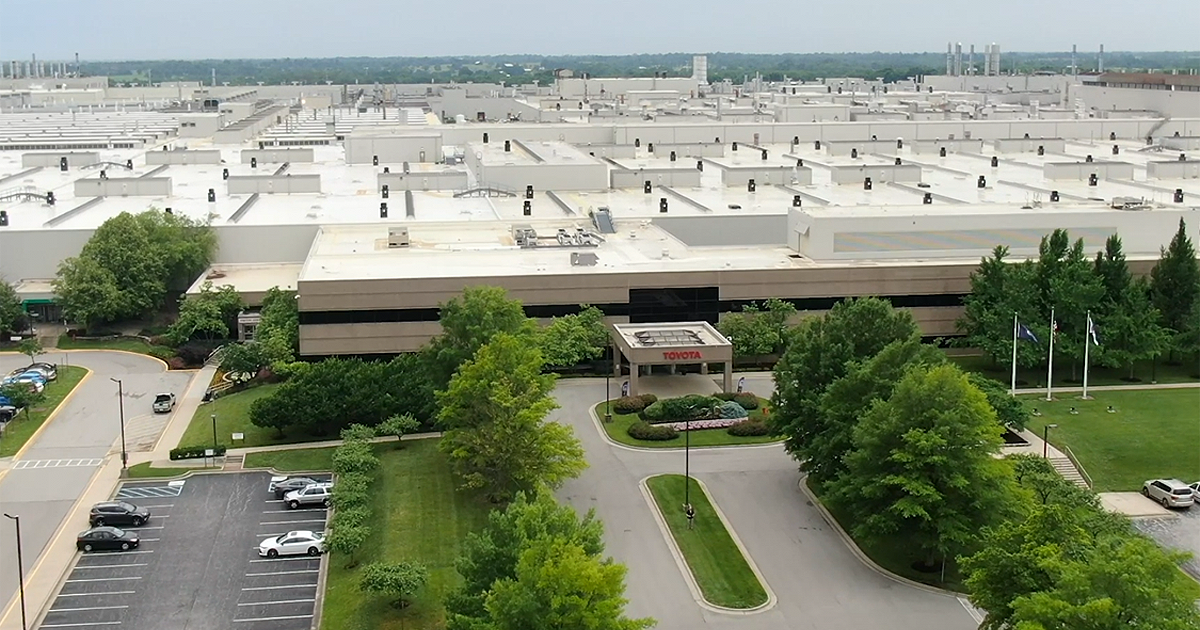
Toyota Motor Corp. will build its first U.S.-made electric vehicle in Kentucky starting in 2025, the automaker said Wednesday.
Toyota will assemble the three-row electric crossover at its largest production plant globally, in Georgetown, Ky.
The EV’s batteries will come from a Toyota complex under construction in Liberty, N.C. A new $2.1 billion investment in that operation, also announced Wednesday, will bring total investment there to $5.9 billion. It will have six battery production lines, four for hybrid vehicles and two for electric vehicles.
Toyota did not reveal details of the new EV model.
Retooling the 9 million-square-foot Georgetown assembly plant for the EV is part of a $461 million investment announced in 2021. The plant also builds the Camry, Camry Hybrid, RAV4 Hybrid and Lexus ES, as well as four- and six-cylinder engines. Production of the ES will be phased out from Georgetown in 2025; the luxury sedan will continue to be built in Japan.
“It is exciting to see our largest U.S. plant, Toyota Kentucky, and our newest plant, Toyota North Carolina, drive us into the future together with BEV and battery production for our expanding electrified lineup,” Toyota Motor North America CEO Ted Ogawa said in a statement.
When asked in a media Q&A on Wednesday why Toyota chose Georgetown for the new EV, Susan Elkington, president of Toyota Motor Manufacturing Kentucky, said: “We are able to be very close to our production engineering location, plus we have an unbelievable work force at this site that can actually really take on the charge in a very short period of time to make sure the product is successful.”
Adding the new EV to Georgetown, which has an annual capacity of 550,000 vehicles per year, is not expected to have a major impact on production. “We are using our shutdowns we do twice a year. Sometimes they’re slightly extended maybe by a week or so to allow us to do the tie-ins, but we are making these changes and still maintaining current production,” she said.
The passage last year of the Inflation Reduction Act, which incentivized North American EV and battery manufacturing, has opened the floodgates for new investment by automakers. Since the law passed in August, automakers and suppliers have announced more than $50 billion in EV and battery investments for North America.
Toyota, which has been later than is rivals to the EV race, plans to release 10 models globally by 2026.
The automaker will invest more than $37 billion in EV development and production through decade’s end.
Toyota anticipates it will reach EV sales of 1.5 million in 2026 with the help of a newly developed vehicle platform it says will double driving range, thanks to more efficient battery use, and require half the investment and development resources.
The U.S.-made electric crossover is vital to Toyota’s efforts to be relevant in the EV age, Sam Fiorani, vice president of global vehicle forecasting at AutoForecast Solutions, told Automotive News.
“With the market seemingly wanting three-row crossovers over midsized ones, Toyota’s entry in this segment with an EV is hitting an untapped segment,” Fiorani said.

